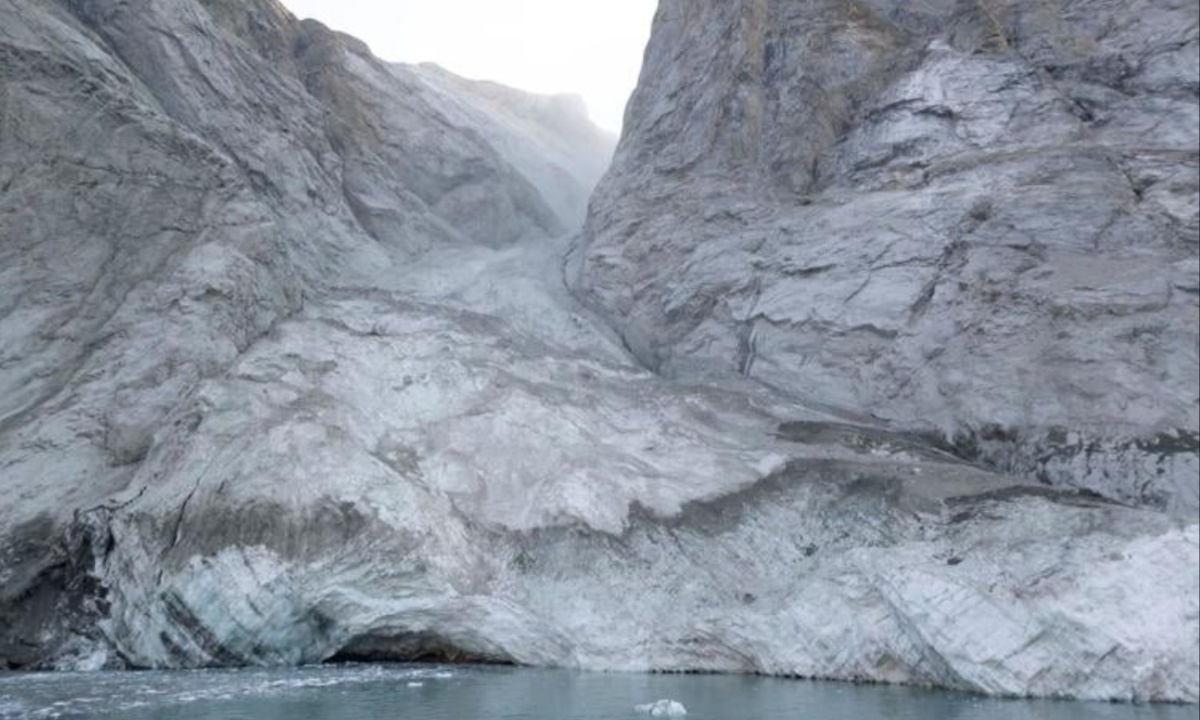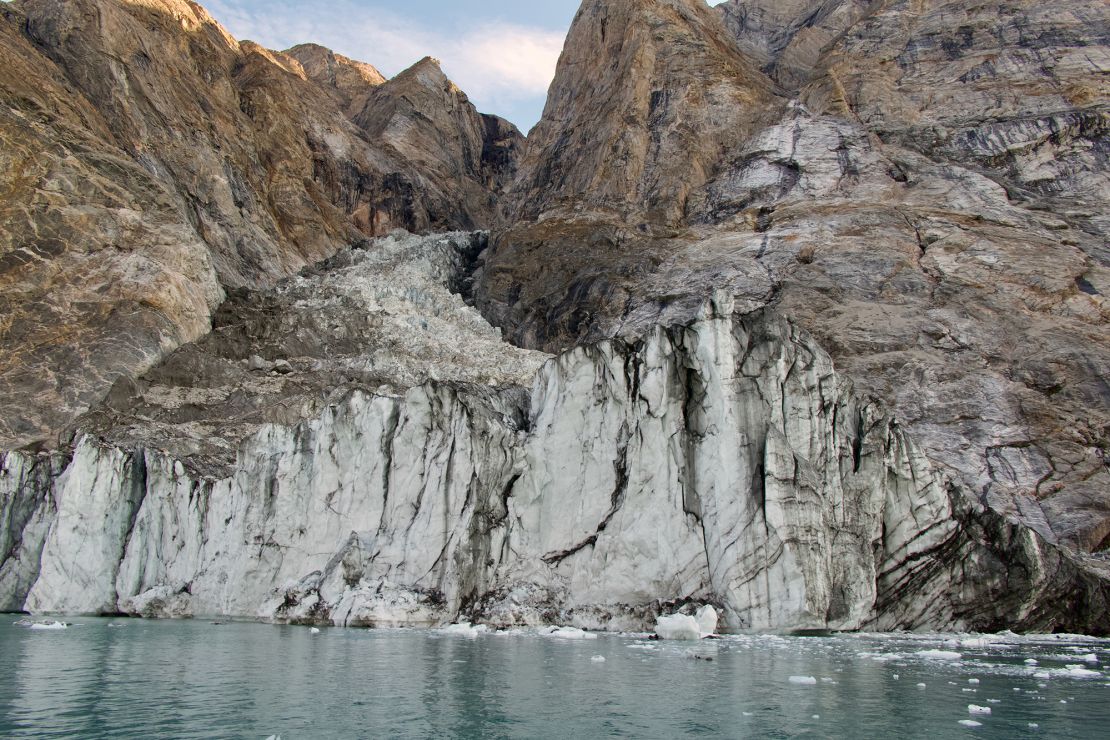In September 2023, a peculiar seismic signal was detected around the world for nine days. The rhythmic vibrations, occurring every 90 seconds, puzzled scientists as they did not resemble traditional earthquake patterns. The unusual duration and regularity of the tremors led researchers to explore various theories, eventually focusing on a landslide in Greenland’s remote Dickson Fjord.
The cause of the seismic activity was traced to a massive landslide in the fjord. Approximately 25 million cubic meters of rock plunged into the icy waters, creating a colossal tsunami. This wave, measuring 200 meters in height, was confined within the fjord’s narrow channels, resulting in a seven-meter-high standing wave that rebounded for nine days. This persistent movement created the seismic signals detected globally.

Experts believe that the landslide was triggered by the melting of glaciers, a consequence of the ongoing climate crisis. Stephen Hicks from University College London explained that as glaciers melt, they can no longer support the mountains they stabilize, leading to more frequent and severe landslides. This event underscores the impact of climate change on remote regions, causing significant alterations to their physical characteristics.
Julienne Stroeve, also from University College London, highlighted the broader implications of glacier melting. She noted that the collapse of large glaciers can lead to dangerous phenomena such as tsunamis and floods. In other regions, glacier retreats are causing avalanches and flooding due to unstable ice formations and newly formed glacial lakes.
The rapid retreat of glaciers is a visible sign of human-induced climate change. Over recent decades, the rate of glacier loss has accelerated, impacting global water resources and contributing to rising sea levels. Stroeve called for immediate action to reduce greenhouse gas emissions to address these environmental challenges and prevent further disasters linked to climate change.

